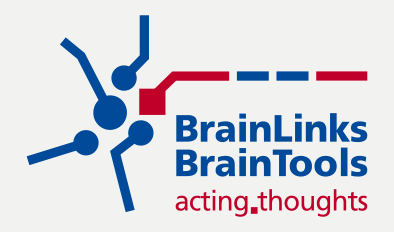
Seventh International Workshop on Guided Self-Organization
The University of Freiburg is pleased to host the 7th International Workshop on Guided Self-Organisation
in collaboration with BrainLinks - BrainTools, December 16-18, 2014.
Home | Call for Abstracts | Committees | Program | Location | Registration | Keynotes | Submissions | Special Issue
GSO-2014 Program
Tuesday, Dec 16th 2014 | Wednesday, Dec 17th 2014 | Thursday, Dec 18th 2014 | |
Self-organised embodied systems and information theory | Complex networks, swarms, and morphogenesis | Networks and GSO theory | |
9:15 | Opening Remarks | ||
9:30 | Ralf Der, Max Planck Institute for Mathematics in the Sciences, Leipzig Guided self-organization of sensorimotor contingencies | Ulrich Egert, University of Freiburg Emergence of structure-function relations in biological neuronal networks | Herbert Jaeger, Jacobs University, Bremen Shaping the Dynamics of Recurrent Neural Networks by Conceptors |
10:30 | Break | Break | Break |
11:00 | Georg Martius and Ralf Der, Max Planck Institute for Mathematics in the Sciences, Leipzig Guided Self-Organization of Behavioral Repertoires and Emerging Gaits | BrainLinks-BrainTools Session - Active stimulation for modulation of complex network activity
| Claudius Gros and Rodrigo Echeveste, Goethe University Frankfurt Guiding self-organization by combining distinct objective functions |
11:25 | Simón C. Smith, Athanasios Polydoros and J. Michael Herrmann, University of Edinburgh | Heiko Hamann and Gabriele Valentini, University of Paderborn, Université Libre de Bruxelles | |
11:50 | Keyan Ghazi-Zahedi, joint work with Guido Montufar & Nihat Ay Max Planck Institute for Mathematics in the Sciences, Leipzig A Framework for Cheap Universal Approximation in Embodied Systems | Francesco Caravelli, University College London Reinforcement walkers vs. graph decay: scale-free networks as a self-organizing emergent phenomenon | |
12:15 | Lunch | Lunch | Val K Bykovsky, Virtek Research Energy-Driven Molecular Sampling and its Competitive Guidance |
13:45 | Jochen Triesch, Frankfurt Institute for Advanced Studies Active Efficient Coding | Guy Theraulaz, Université Paul Sabatier, Toulouse From individual to collective information processing in fish schools | Wrap-Up (12:40) |
14:45 | J. Michael Herrmann, University of Edinburgh | Oliver Obst, Andreea Lazar and Joschka Boedecker, CSIRO ICT Centre, Max Planck Institute for Brain Research, Frankfurt, University of Freiburg Representations and Self-Organisation in Recurrent Networks | |
15:10 | Christoph Salge, Cornelius Glackin and Daniel Polani, University of Hertfordshire | Renato Duarte, University of Freiburg Synaptic adaptation stabilizes sequential stimulus representations | |
15:35 | Break | Break | |
16:05 | Mikhail Prokopenko and Joseph T. Lizier, University of Sydney | René Doursat, Complex Systems Institute, Paris Morphogenetic Engineering in Swarm Robotics and Synthetic Biology | |
16:30 | Paolo Perrone and Nihat Ay, Max Planck Institute for Mathematics in the Sciences, Leipzig | Yuri Shalygo, Gamma Ltd, Vyborg | |
16:55 | Tim Genewein and Daniel A. Braun, Max Planck Institute for Biological Cybernetics, Tübingen An information-theoretic optimality principle for the formation of abstractions | Linge Bai and David E. Breen, Drexel University, Philadelphia Directing Chemotaxis-Based Spatial Self-Organization via Biased, Random Initial Conditions | |
17:20 | Wrap-Up | Wrap-Up |
Regular talks (light green) are 20 mins + 5 mins Q&A